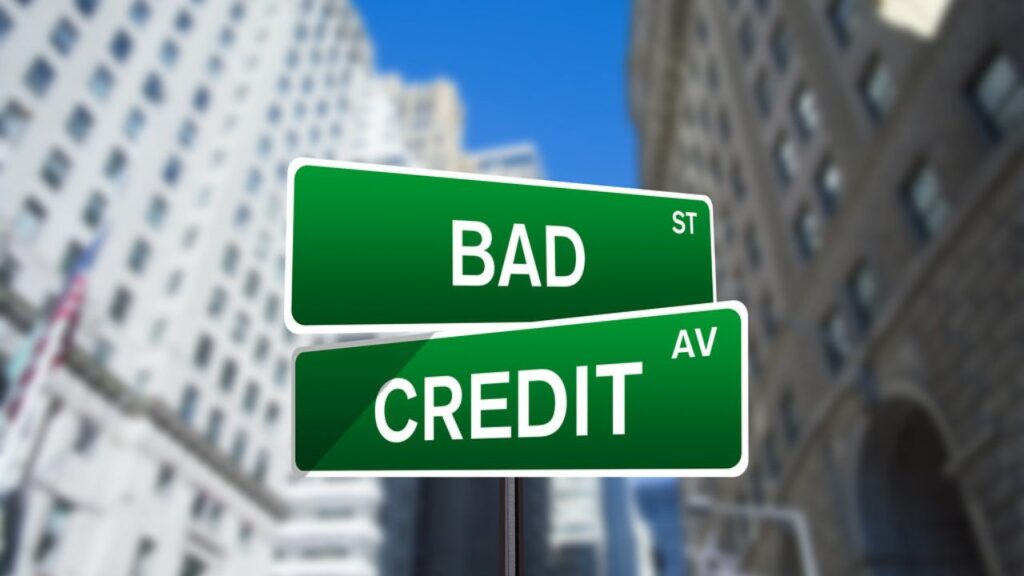Does Credit Union Give Loans To Bad Credit? Yes, many credit unions offer loans to individuals with bad credit, often with more flexible terms than traditional banks.
It may seem harsh to locate a lender willing to provide you with a loan when dealing with bad credit. However, what if I told you that credit unions could hold the secret to getting the money you require?
Even if your credit score is far from ideal, credit unions are worth looking into whether you need cash for emergencies, debt consolidation, or other reasons.
This blog post will explain how credit unions operate, why they might be more likely than traditional banks to approve your loan application, and what you should know before applying for a loan if you have bad credit.
Contents
- 1 A credit union: what is it?
- 2 Do People with Bad Credit Get Loans from Credit Unions?
- 3 Why Would You Want to Take Out a Loan from a Credit Union?
- 4 What Kinds of Credit Union Loans Are Available to People with Poor Credit?
- 5 Things to Take Into Account Before Using Bad Credit to Apply for a Loan
- 6 FAQs Regarding Bad Credit Credit Union Loans
- 6.1 1. Is a credit union membership required to obtain a loan?
- 6.2 2. Can I still acquire a loan if my credit score is less than 500?
- 6.3 3. Will my credit score suffer if I apply for a loan with bad credit?
- 6.4 4. How much do bad credit loans cost in interest?
- 6.5 5. How can someone with poor credit increase their chances of obtaining a loan?
- 7 Concluding remarks: Does Credit Union Give Loans To Bad Credit?
A credit union: what is it?
Let’s first define a credit union before getting into the specifics of loans.
Since a credit union is a member-owned, non-profit financial organization, its mission is to meet the financial needs of its members rather than maximizing profits for shareholders, as is the case with commercial banks.
As a result, credit unions usually provide more individualized customer service, greater interest rates on savings, and reduced costs.
Credit unions frequently have more latitude in determining the requirements for loan acceptance because they are smaller and more community-focused. Your chances of being granted a loan from a credit union rather than a typical bank may be higher if you have poor credit.
Do People with Bad Credit Get Loans from Credit Unions?
Indeed, many credit unions provide loans to borrowers with poor credit. They frequently have a greater grasp of financial difficulties and are more inclined to lend money to people who conventional banks have rejected.
Instead of focusing on a member’s credit score, credit unions typically consider their members’ long-term financial health. Even with less-than-perfect credit, you have a better chance of getting a loan if you’ve been a member for a long time and have a track record of responsible banking.
However, not all credit unions will provide loans to people with poor credit. Policies vary from credit union to credit union; some may be more forgiving than others. [Does Credit Union Give Loans To Bad Credit?]
However, credit unions are generally better than large banks if your credit score is poor (less than 600). Even better, some credit unions provide special loan programs for those with poor credit, which are commonly known as “subprime loans.”
Why Would You Want to Take Out a Loan from a Credit Union?
1. Reduced interest rates
When compared to regular banks, credit unions frequently have lower interest rates. This is because non-profit organisations prioritize serving members over making a profit.
Your terrible credit may still result in a higher interest rate, but it will be more affordable than what you would get at a for-profit bank. [Does Credit Union Give Loans To Bad Credit?]
2. Adaptable Loan Conditions
The conditions of your loan, such as the payback schedule or collateral needs, are more likely to be negotiated with credit unions. This flexibility might help you manage your payments and prevent missing any if your credit score is low.
3. Tailored Assistance
You’ll get more individualized customer care at credit unions because they are member-focused. Representatives from credit unions are frequently happy to take the time to walk you through your options if you have questions concerning your loan application or need suggestions on how to raise your credit.
4. More Sensible Conditions
In contrast to large banks, credit unions frequently consider factors other than your credit score. They might consider your employment history, income, and connection to the credit union. You may have an advantage over someone applying for a bank loan if you have been a member for a long time.
5. Financial Guidance and Assistance
To help you raise your credit score, a lot of credit unions provide workshops or financial counselling. Using these resources will help you make better financial decisions in the future if you’re serious about repairing your credit after a loan.
What Kinds of Credit Union Loans Are Available to People with Poor Credit?
Some lending options credit unions offer may be more suitable for people with poor credit. [Does Credit Union Give Loans To Bad Credit?]
1. Individual Loans
One of credit unions’ most popular loan products is the personal loan. These loans can finance home renovation projects, pay medical bills, or even consolidate debt.
Credit unions may accept your application with more relaxed terms than a commercial bank, even though your credit score may result in higher interest rates.
2. Loans with security
You may need to provide collateral for a loan if your credit is poor. With secured loans, such as home equity or auto loans, you can borrow money by pledging an item as security, such as your house or automobile.
The credit union may seize the asset if you cannot repay the loan. Secured loans may be easier for people with poor credit since they pose less risk to lenders.
3. Loans for Credit Builders
Specialized loans are available from certain credit unions to assist those with poor credit to raise their credit scores. [Does Credit Union Give Loans To Bad Credit?]
These are usually minor loans held in a certificate of deposit (CD) or savings account until repaid. Making on-time payments raises your credit score, which makes it easier for you to get bigger loans later on.
4. Auto Loans
Credit unions might be a better alternative to regular banks if you’re trying to finance a car and have bad credit. People with bad credit can get auto loans from many credit unions, sometimes with more flexible terms and cheaper interest rates.
5. Loans for Debt Consolidation
Consolidating several loans into a single loan could make your payments more manageable. To make it easier for you to pay off your debt and repair your credit, credit unions frequently provide debt consolidation loans to help you handle high-interest credit card debt and other debts.
Things to Take Into Account Before Using Bad Credit to Apply for a Loan
Before submitting a loan application, you should think about the following:
Verify Your Credit Score: You can determine what loan terms you might be eligible for by knowing your credit score. Your credit score will still significantly impact the loan’s terms and interest rate, even though credit unions are more accommodating than banks.
Compare Various Credit Unions: Before applying, compare the terms and prices offered by a few credit unions because they are different. Particularly if you’ve been a member for a long time, certain people could be more open to working with you than others.
Recognise the Fees: Certain loans have prepayment penalties or other unstated costs. Before signing any contracts, ensure you have read the fine print and are aware of all your loan expenses. [Does Credit Union Give Loans To Bad Credit?]
Make a Plan for Repayment: It’s essential to be sure you can afford the monthly payments because adverse credit frequently translates into higher interest rates. You can stay on track and prevent further debt accumulation by having a sound repayment plan.
See Also: Can I Transfer Credit Card Debt To Another Person?
FAQs Regarding Bad Credit Credit Union Loans
1. Is a credit union membership required to obtain a loan?
Yes, to apply for a loan at most credit unions, you must be a member. Nonetheless, joining a credit union is frequently simple; some even let you do so with minimal down payment.
2. Can I still acquire a loan if my credit score is less than 500?
It’s challenging yet feasible. Your alternatives may be limited if your credit score is below 500, but most credit unions are more forgiving than banks. You could have to accept a higher interest rate or provide collateral.
3. Will my credit score suffer if I apply for a loan with bad credit?
When you apply for a loan, your credit report usually receives a hard inquiry, which can temporarily reduce your score by a few points. However, this effect won’t last long if you pay on time.
4. How much do bad credit loans cost in interest?
Generally, bad credit loans have higher interest rates than loans for borrowers with strong credit. Credit unions frequently provide lower rates than traditional banks, even for people with poor credit.
5. How can someone with poor credit increase their chances of obtaining a loan?
Your chances of being approved for a loan can be improved by raising your credit score, choosing a credit union with flexible lending standards, providing collateral, and having a steady income.
Concluding remarks: Does Credit Union Give Loans To Bad Credit?
Although it’s never simple to get a loan when you have bad credit, credit unions might be a more convenient and cost-effective choice than traditional banks.
Credit unions are an excellent option for anyone trying to rebuild their financial future because of their more flexible terms, reduced interest rates, and member-focused philosophy.
Before applying, be sure you are making the most excellent financial choice for yourself by weighing your options, reading the fine print, and developing a sound repayment plan.

Kaiya Acosta recently finished studying finance. He has always wanted to create a blog about money. Now, he is making his dream real. Kaiya is from Texas, USA, and loves helping people learn how to manage their money better.

